Have you ever wondered, why do dogs have wet noses? This curious characteristic of our furry friends is not just an adorable quirk but serves several important purposes that can surprise you! A wet nose in dogs is often a sign of health, as it helps them sense the world better, but there’s more to it than meets the eye. Did you know that a dog’s wet nose can even enhance their sense of smell? In this article, we’ll explore the surprising benefits of a dog’s wet nose and how it aids in communication, temperature regulation, and even emotional bonding. Are you curious about how this unique trait contributes to your pet’s wellbeing? What if we told you that a dog’s wet nose can also indicate their feelings? By discovering the science behind this fascinating feature, you will gain a deeper understanding of your dog’s behavior and health. So, if you’re eager to learn why do dogs have wet noses and uncover the secrets behind their wet, cold noses, keep reading to find out more about these wonderful wonders of nature!
The Science Behind Dog Noses: Why Are They Always Wet?
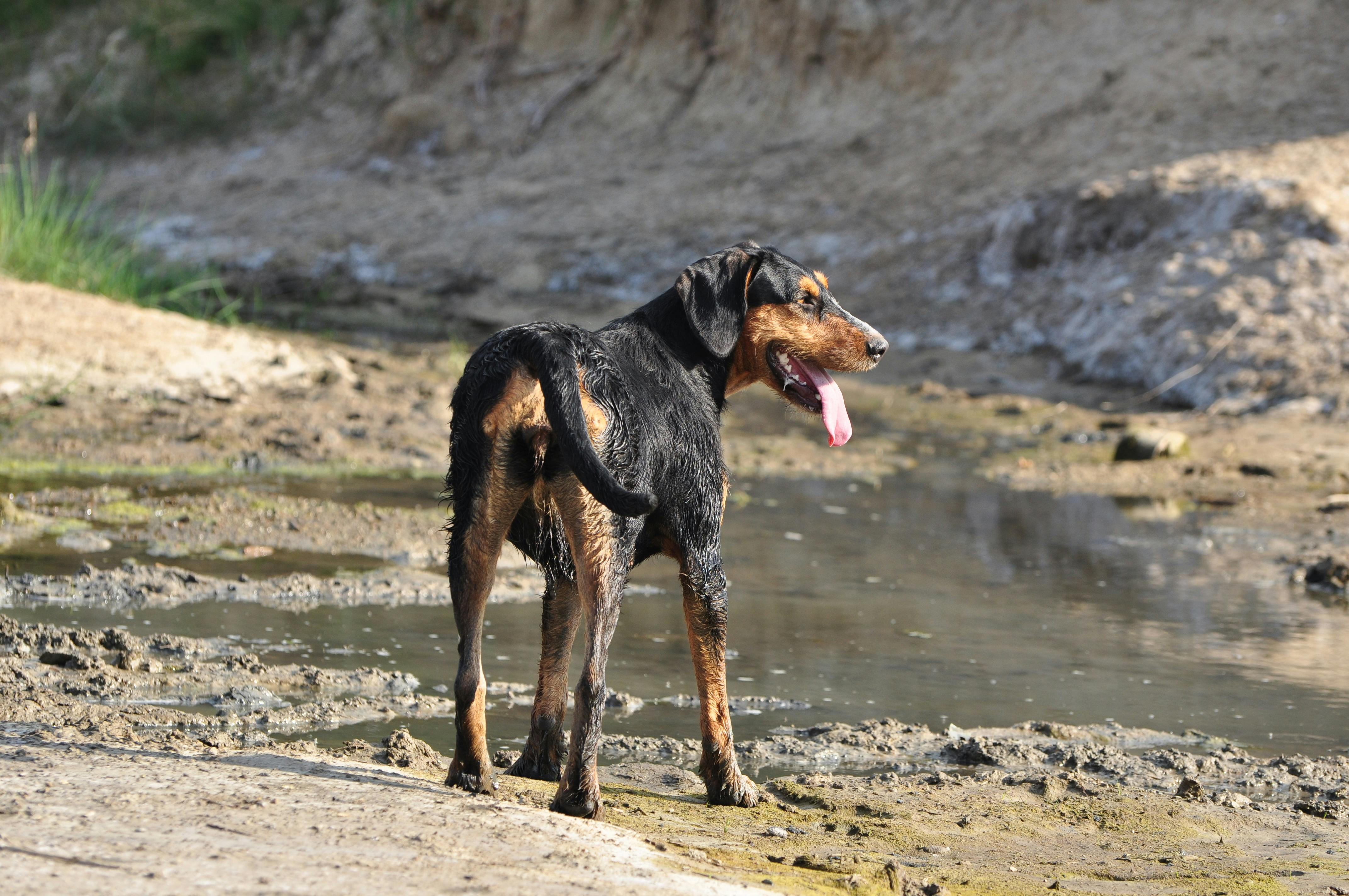
If you ever wondered why dogs have wet noses, you’re not alone. It’s a common question among dog lovers and curious minds alike. Wet noses are one of the many unique features that make dogs such fascinating companions. But have you ever thought about the science behind it? Why do dogs have wet noses? What benefits does this trait provide? Let’s dive into the surprising world of canine snouts and explore the reasons behind their moist surface.
The Anatomy of a Dog’s Nose
A dog’s nose is a complex structure that plays a major role in their sensing abilities. Unlike humans, who primarily rely on vision and hearing, dogs depend on their sense of smell to understand the world around them. The moistness of a dog’s nose has several functions, which we can break down as follows:
Enhanced Olfactory Function: The wet surface of a dog’s nose helps to capture scent particles from the air. This enhances their ability to detect odors. When the nose is wet, it can trap more scent molecules. This is crucial for dogs, as they have approximately 220 million scent receptors, compared to a human’s 5 million.
Temperature Regulation: Dogs don’t sweat the same way humans do. Their primary means of cooling down is through panting, but their wet noses also help. The moisture evaporating from the surface of their nose cools them down, which is especially important during hot weather.
Health Indicator: A wet nose is often a sign of a healthy dog. Changes in moisture levels could indicate illness or stress. For instance, if a dog’s nose feels dry and warm, it can be a sign of fever or dehydration.
Why Are Dog Noses Always Wet?
So, why do dogs have wet noses? One main reason is that their noses secrete a thin layer of mucus, which keeps the surface moist. This mucus not only aids in capturing scents but also helps in identifying different smells. When a dog sniffs, they inhale through their nose and then exhale through their mouth, allowing them to analyze odors more efficiently.
Also, when a dog licks its nose, it adds even more moisture. Dogs often engage in this behavior when they are curious or excited, which helps them gather more information about their surroundings. It’s like their version of taking notes!
Surprising Benefits of a Wet Nose
You may not realize it, but a wet nose offers several surprising benefits beyond just smell. Here are some advantages of having a moist nose:
Scent Discrimination: Dogs can differentiate between various smells more effectively with a wet nose. This is essential for working dogs, like search and rescue, where scent discrimination is critical.
Emotional Communication: A wet nose can also serve as a form of communication. When a dog nudges you with their wet nose, it can be a sign of affection or a request for attention. It’s their way of saying, “Hey, let’s play or cuddle!”
Infection Defense: The moisture on a dog’s nose can help protect against certain infections. The mucus can trap bacteria and other harmful pathogens, keeping their nose healthier.
Fun Facts About Dog Noses
The color of a dog’s nose can vary widely among breeds and even individuals. Some have black noses, while others have pink or spotted noses.
Dogs have a specialized organ called the Jacobsen’s organ, located in the nasal cavity, which helps them process smells more deeply. This organ is part of what makes their sense of smell so extraordinary.
The wetness of a dog’s nose can vary depending on the weather. On hot days, you might notice your dog’s nose is even wetter than usual.
Common Misconceptions
There are plenty of myths out there about dog noses. For example, many people think that a cold, wet nose means a dog is sick. That’s not always true! A dog’s nose temperature can fluctuate throughout the day, and it’s important to consider other symptoms when assessing their health.
Also, some believe that all dog breeds have the same type of nose. However, there’s a wide variety in nose shapes, sizes, and moisture levels across different breeds.
In exploring the question of why do dogs have wet noses, we uncover a fascinating interplay of biology, behavior, and bonding. So next time you give your furry friend a scratch behind the ears, remember the science that keeps that nose moist and ready to detect the world around them. It’s just another reason to love and appreciate our canine companions!
7 Fascinating Reasons Your Dog’s Nose Is a Vital Health Indicator
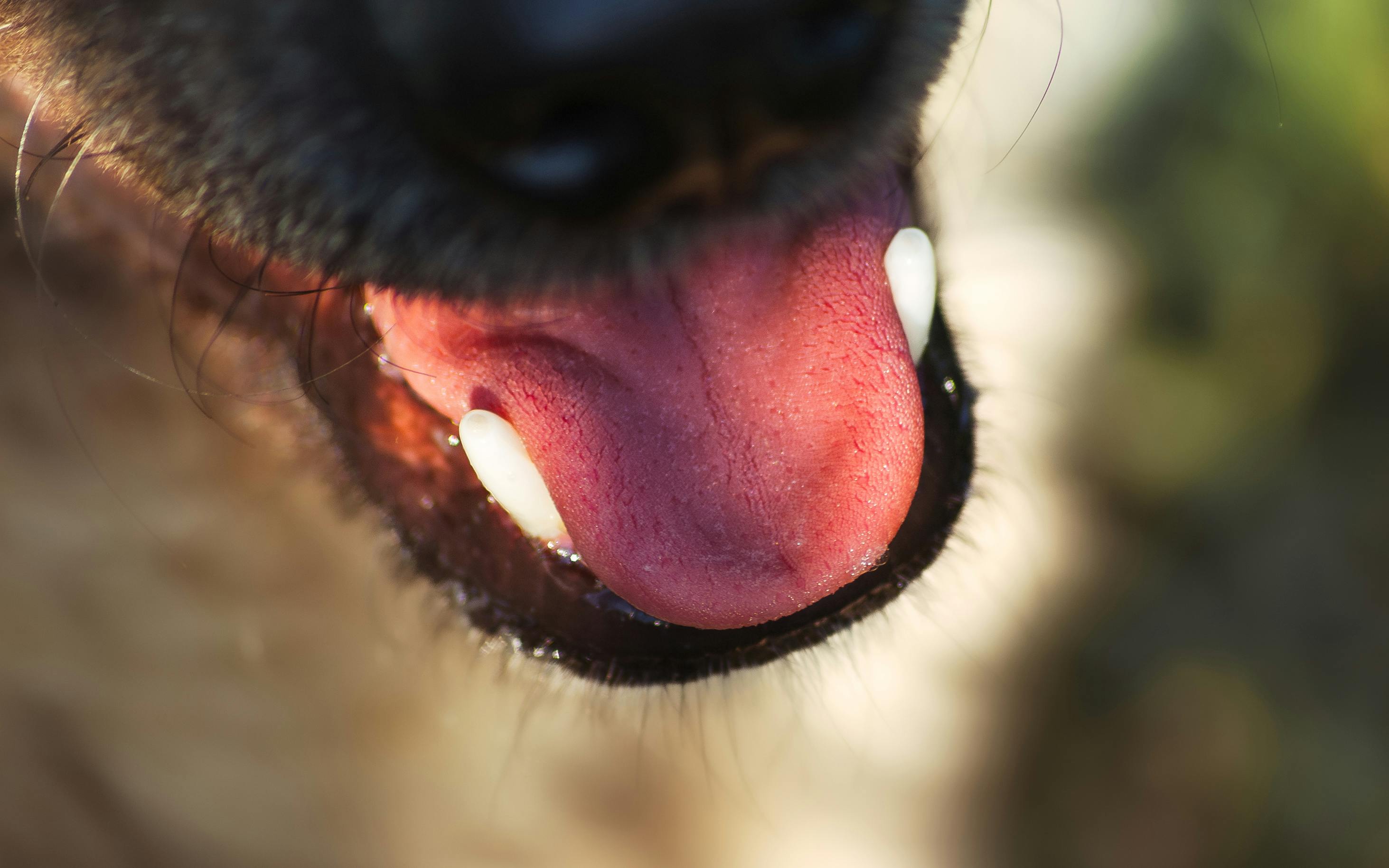
Dogs have been our loyal companions for thousands of years. Their wet noses often cause curiosity among pet owners and animal lovers alike. Have you ever wondered why do dogs have wet noses? It’s not just a cute feature; it holds fascinating health insights. Here are seven reasons your dog’s nose is a vital health indicator and why you should pay attention!
1. Temperature Regulation
Dogs does not sweat like humans do. Instead, they rely on their noses to help regulate their body temperature. The moisture on a dog’s nose helps them cool off. When it’s hot outside, their noses can become wetter as they pant and breathe out warm air. This is a natural way for dogs to stay comfortable. If you notice a dry nose, it could mean that your dog’s temperature is rising.
2. Sense of Smell
A dog’s nose is an incredibly powerful tool. It’s estimated that dogs have between 220 million to 300 million scent receptors. That’s compared to a human’s mere 5 million! The wetness of their noses helps to trap scent particles, enhancing their sense of smell. This ability allows dogs to detect diseases in humans, like cancer or diabetes, sometimes even before doctors can. So, when your dog gives you a sniff, they are not only being affectionate; they might also be gathering health information.
3. Hydration Levels
The moisture on your dog’s nose can be a quick indicator of their hydration. A healthy, well-hydrated dog usually has a moist nose. If you notice it’s become dry or cracked, it could indicate dehydration. This is especially important to monitor during hot weather or after vigorous exercise. Providing fresh water and monitoring their nose can help keep your furry friend healthy.
4. Signs of Illness
A sudden change in your dog’s nose can be a warning sign. If it becomes excessively dry, hot, or develops sores, it might suggest an underlying health issue. Common ailments that can affect the nose include:
- Allergies
- Infections
- Autoimmune diseases
- Nasal tumors
If you observe any unusual changes, it’s best to consult a veterinarian for a thorough examination.
5. Social Communication
Dogs communicate with each other through various means, and their noses play a significant role in that. A wet nose can signal friendliness or submission among dogs. They use it to gather information about other dogs or animals, which can tell them about a potential friend or foe. If your dog approaches another with a wet nose, they are likely trying to establish a friendly connection.
6. Environmental Awareness
Dogs have an incredible ability to sense changes in their environment, and their wet noses help them do just that. The moisture helps them pick up on chemical signals in the air, allowing them to detect changes in weather, other animals, or even shifts in human emotions. This is why you might notice your dog acting differently when there’s a storm coming or when someone new approaches.
7. Breed Variations
Interestingly, not all dog breeds have the same type of nose. Some breeds have drier noses due to genetic factors, while others are known for their particularly wet noses. For instance, breeds like the Labrador Retriever usually have moist noses, while some brachycephalic breeds, like Bulldogs, may have a drier nose. Understanding these differences can help you gauge your dog’s health better.
Practical Tips for Dog Owners
- Monitor Nose Moisture: Regularly check your dog’s nose. A healthy nose should be cool and moist.
- Stay Hydrated: Always provide fresh water, especially during the warmer months.
- Veterinary Check-ups: Schedule regular vet visits to catch any potential health issues early.
- Observe Behavior: Changes in nose moisture can be accompanied by changes in behavior, so keep an eye on your dog’s overall demeanor.
Quick Comparison of Nose Conditions
| Condition | Moist Nose | Dry Nose |
|---|---|---|
| Healthy | Cool and moist | May be warm or dry |
| Dehydration | May dry out | Often dry or cracked |
| Allergic Reaction | Moist but irritated | May be dry with lesions |
| Infection | May be warm and moist | Often dry and inflamed |
Understanding why do dogs have wet noses is crucial for every pet owner. It’s not just a quirky trait; it’s a window into your dog’s health. By being attentive to the condition of your dog’s nose, you can better ensure their wellbeing. So the next time your dog nudges you with that wet nose, remember, they might be communicating much more than you realize!
How Wet Noses Enhance Your Dog’s Sense of Smell: The Surprising Facts
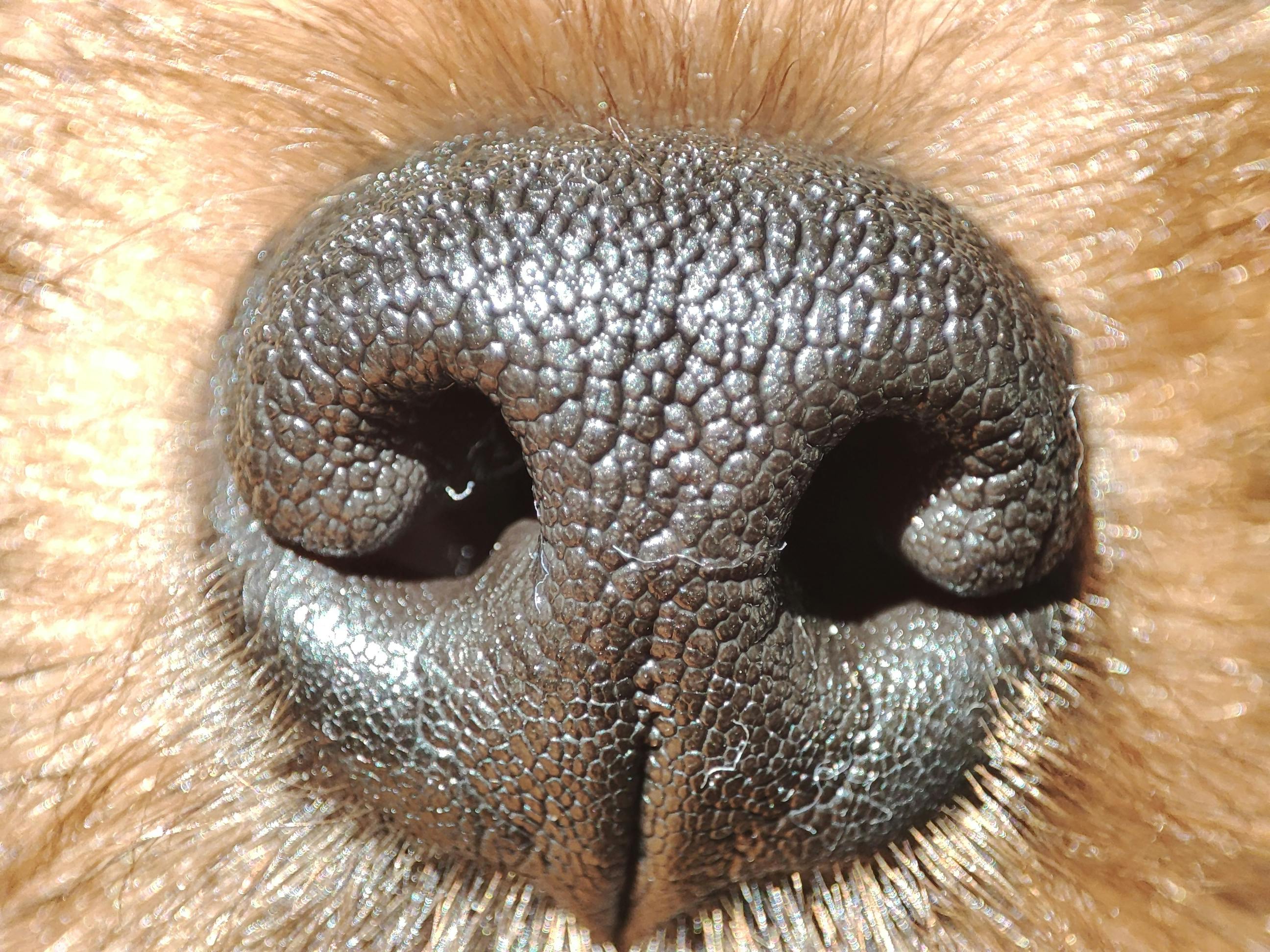
Dogs are often known as man’s best friend, but there’s something about their wet noses that really makes them special. It’s not just a quirky feature; it’s actually plays a crucial role in how dogs interact with the world around them. Ever wonder why do dogs have wet noses? Well, let’s dive into the fascinating world of canine olfaction and discover the surprising benefits of those moist snouts.
The Science Behind a Wet Nose
The moisture on a dog’s nose isn’t just for show. It serves several important purposes in enhancing their sense of smell. When a dog’s nose is wet, it helps to capture scent particles from the air. This is because the moisture can dissolve these particles, making it easier for the olfactory receptors in their noses to detect them. Dogs have around 220 million scent receptors, while humans only have about 5 million. This dramatic difference is why dogs can sniff out things that humans can’t even imagine!
Why Do Dogs Have Wet Noses?
Here’s a quick breakdown of why dogs have those wet noses:
- Scent Detection: Wet noses absorb scent molecules better.
- Temperature Regulation: Dogs can cool themselves off through their noses.
- Health Indicator: A wet nose can signal a healthy dog, while a dry nose might indicate illness.
- Communication Tool: Dogs use their noses to gather information about other animals and humans.
Historical Context of Wet Noses
Throughout history, dogs were bred for various purposes, including hunting, herding, and companionship. Their noses have evolved to assist in these roles. For example, hunting dogs like Bloodhounds are famous for their incredible sense of smell, which is largely due to their wet noses. In ancient times, humans relied heavily on dogs for tracking and hunting; their wet noses were a critical asset in those tasks.
The Benefits of a Wet Nose
Having a wet nose isn’t just beneficial for dogs; it also has its perks for us humans. Here are some surprising benefits of a wet nose:
- Enhanced Bonding: Dogs often nuzzle their wet noses against people as a sign of affection.
- Scent Identification: Wet noses help dogs identify scents quickly, which is essential for service dogs in roles like search and rescue.
- Health Monitoring: A dog’s wet nose can change due to health issues; monitoring this can alert owners to potential problems.
What Changes a Dog’s Nose?
A dog’s nose can change due to various factors. Here’s a quick list of reasons why a dog’s nose may be dry or wet:
- Health Issues: Illness can lead to a dry nose.
- Weather Conditions: Hot weather can dry out a nose while humidity can keep it moist.
- Hydration Levels: Dehydrated dogs may have drier noses.
- Age Factors: Older dogs might experience changes in nose moisture.
Comparing Wet and Dry Noses
It’s interesting to compare the characteristics of wet and dry noses. Here’s a simple table:
| Characteristic | Wet Nose | Dry Nose |
|---|---|---|
| Scent Absorption | High | Low |
| Temperature Regulation | Effective | Less effective |
| Health Indicator | Usually healthy | Potential health issues |
| Common in | Active, healthy dogs | Dogs feeling unwell or dehydrated |
Practical Examples of Nose Use
Dogs use their noses in incredible ways. Here are some examples of how their sense of smell is applied in real life:
- Search and Rescue: Dogs are trained to find missing persons using their keen sense of smell.
- Detecting Diseases: Some dogs can detect diseases like cancer through scent.
- Detecting Drugs or Explosives: Police dogs are trained to sniff out illegal substances.
So, next time you see your furry friend with that wet nose, remember it’s not just for cute moments. It’s a powerful tool that helps your dog navigate the world. Keeping an eye on your dog’s nose can also be a good practice for their health.
The wet nose is a remarkable feature that not only enhances a dog’s ability to smell but also contributes to their well-being and interactions with humans. The wet nose is more than adorable; it’s an essential part of what makes dogs such incredible companions.
Wet Dog Noses vs. Dry Dog Noses: What Each Means for Your Pet’s Health

When you own a dog, their health and wellbeing is always on your mind. One of the things often gets overlooked is the status of their nose. Wet dog noses vs. dry dog noses can tell you a lot about your furry friend’s health. But why do dogs have wet noses in the first place? This article will explore the significance of a dog’s nose, and what it means for their overall health.
Why Do Dogs Have Wet Noses?
A dog’s nose is usually wet for a number of reasons. First, let’s consider how dogs have evolved. Wet noses help dogs in several ways. Here are a few key points:
- Enhanced Smell: A wet nose helps to absorb scent chemicals in the air, which makes it easier for dogs to smell. Their sense of smell is 10,000 to 100,000 times more sensitive than that of humans, and wetness gives them the edge in tracking down scents.
- Cooling Mechanism: Dogs don’t sweat like humans do, so they rely on their noses to help regulate their body temperature. A wet nose can help cool them down.
- Health Indicator: The moisture level of a dog’s nose can be a sign of their health. A nose that’s too dry, or excessively wet, may indicate underlying health problems.
Wet Dog Noses: The Surprising Benefits
Wet noses are not just a quirk of dog anatomy; they serve important functions. Here’s what wet dog noses means for your pet’s health:
- Hydration Indicator: A wet nose usually means your dog is well-hydrated. Dehydration can lead to health issues, and a dry nose might be a sign that your dog needs more water.
- Temperature Regulation: Dogs release moisture through their noses, which helps cool them down on hot days. This is important for their comfort and overall health.
- Social Interaction: Dogs, being pack animals, often use their noses to communicate with other dogs. A wet nose can be a friendly greeting, signaling openness and approachability.
Dry Dog Noses: What Could It Mean?
On the other hand, a dry dog nose can signal various health issues. Here are some common causes of a dry nose:
- Dehydration: If your dog isn’t drinking enough water, it could lead to a dry nose. Make sure your pet always has access to fresh water.
- Illness: Sometimes, a dry nose can indicate illness. Conditions like fever, allergies, or infections can lead to changes in moisture levels.
- Environmental Factors: Hot weather or low humidity can also dry out your dog’s nose. If you’re in a dry climate, consider ways to keep your pet hydrated and comfortable.
Comparing Wet and Dry Dog Noses
Here’s a simple comparison of the meanings behind wet and dry dog noses:
| Condition | Possible Meaning | Action to Take |
|---|---|---|
| Wet Nose | Healthy, hydrated, happy dog | Regular vet check-ups, hydration |
| Dry Nose | Possible dehydration or illness | Monitor for other symptoms, vet visit if necessary |
Keeping Your Dog’s Nose Healthy
There are steps you can take to ensure that your dog’s nose stays healthy:
- Hydration: Always provide fresh water, and encourage your dog to drink. Adding wet food can also help increase their fluid intake.
- Regular Vet Visits: Routine check-ups can help catch any potential health issues early on.
- Environmental Adjustments: If you live in a dry area, consider using a humidifier in your home to provide relief.
Signs to Watch For
If you’re concerned about your dog’s nose, keep an eye out for these warning signs:
- Cracks or sores on the nose
- Excessive dryness or wetness
- Changes in color or texture
- Other symptoms like lethargy or loss of appetite
Understanding your dog’s health can be complex, and their nose is just one indicator. It’s important to stay vigilant and consult with a veterinarian if you notice any unusual changes.
So, wet dog noses vs. dry dog noses can tell you a lot about your pet’s well-being. Knowing the reasons behind these conditions and how to care for your furry friend’s nose can help you ensure they live a healthy, happy life. Keeping an eye on their hydration and health will help you enjoy many more years with your four-legged companion.
The Role of Moisture: How a Wet Nose Helps Dogs Stay Cool
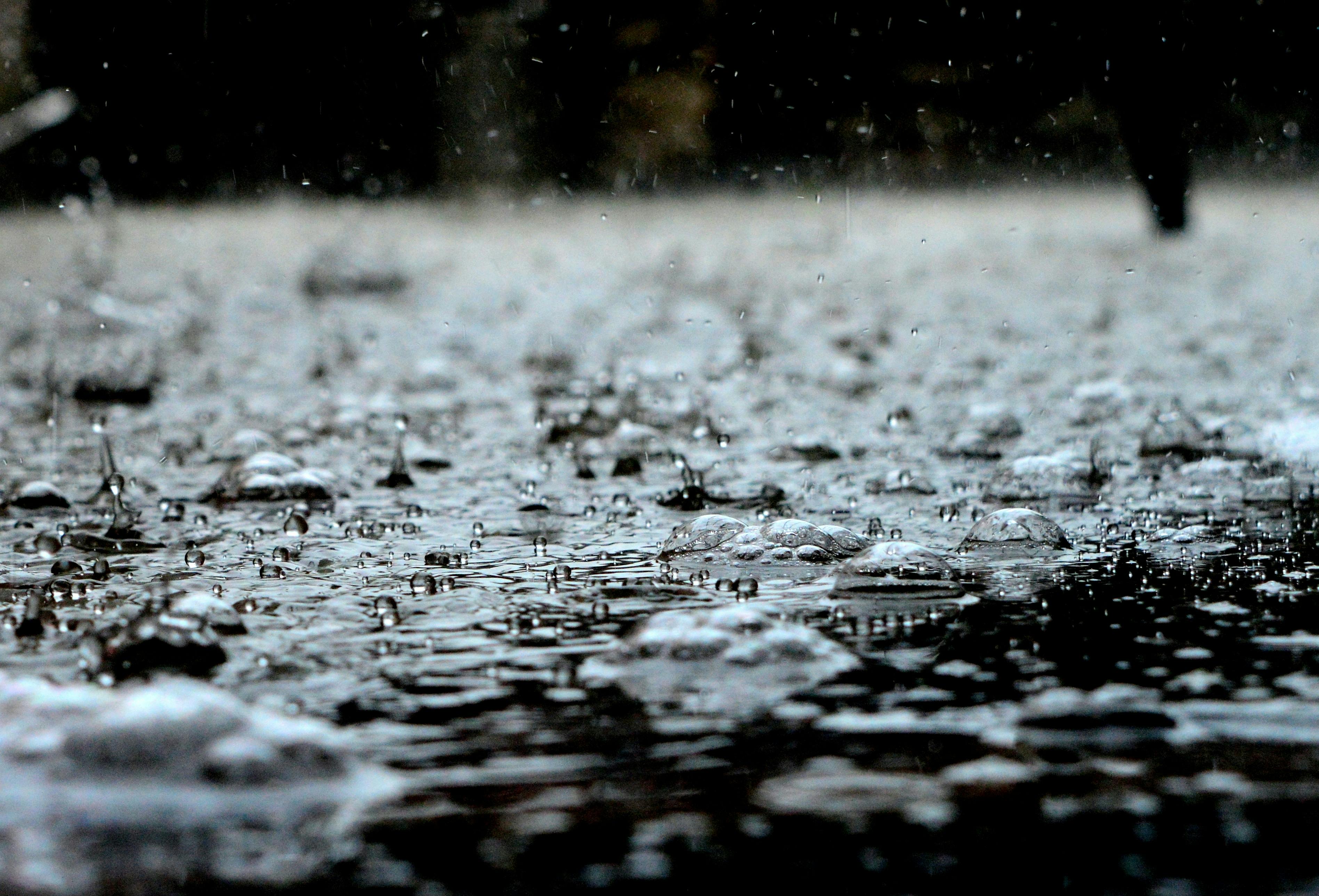
Dogs are some of the most beloved pets globally, and their unique characteristics never cease to amaze us. One of the most curious features about dogs is their wet noses. Many people often wonder, “Why do dogs have wet noses?” It turns out that this seemingly simple characteristic plays a significant role in their overall health and behavior. Let’s dive into the role of moisture and discover how a wet nose helps dogs stay cool, along with the surprising benefits of this unique trait.
The Science Behind a Wet Nose
The moisture on a dog’s nose is no accident. In fact, it serves several important functions. A wet nose is a result of the secretion of mucus, which helps to keep the nose cool and enhances the dog’s sense of smell. Dogs have an incredible olfactory system, estimated to be anywhere from 10,000 to 100,000 times more sensitive than that of humans. This sensitivity is crucial for their survival and communication.
Enhancing Smell: The moisture on their nose picks up scent particles from the air, allowing dogs to process smells more effectively. This is why dogs are often used in search and rescue missions.
Cooling Mechanism: Dogs don’t sweat like humans do. Instead, they cool down primarily through panting and breathing. A wet nose can help regulate their body temperature, giving them a better chance to stay cool on hot days.
Why Do Dogs Have Wet Noses?
The evolutionary aspect of a wet nose is fascinating. Dogs, which are descendants of wolves, have retained many features from their wild ancestors. In the wild, a wet nose would have been beneficial for hunting and tracking prey. As dogs evolved to become domesticated, these traits remained. Here’s a table that summarizes the key reasons why dogs have wet noses:
| Reason | Description |
|---|---|
| Enhanced Smell | Wet noses absorb scent particles, improving a dog’s ability to detect odors. |
| Temperature Regulation | The moisture helps to regulate the body temperature of dogs, keeping them cool. |
| Health Indicator | Changes in nose moisture can indicate potential health issues like fever or dehydration. |
| Communication | Dogs use smell to communicate with each other, and moisture helps in scent marking. |
The Surprising Benefits of Wet Noses
It might be surprising, but a wet nose isn’t just about function; it has social benefits too. Dogs use their noses to interact with other dogs and humans. Here’s a list of benefits that come with having a wet nose:
Social Interaction: A wet nose is often seen as a friendly greeting. Dogs tend to touch their noses to other pets or humans when they are being social.
Health Monitoring: A wet nose is often an indicator of a healthy dog. When a dog’s nose becomes dry or cracked, it may signal illness or dehydration, prompting owners to take action.
Behavioral Reassurance: Dogs feel more secure and confident with a wet nose. It can help them navigate their surroundings, especially in unfamiliar places.
Sense of Well-being: The act of licking their noses can be soothing for dogs, giving them a sense of comfort in stressful situations.
Historical Context of Dog Noses
Historically, dogs have been companions to humans for thousands of years. Ancient cultures recognized the importance of a dog’s sense of smell. In fact, hunting breeds were often prized for their ability to track scents. Over time, dogs have been utilized in various roles, from hunting to herding, and now primarily as companions. The evolution of their wet noses has played a pivotal role in their functionality and utility.
Comparing Wet Noses with Other Animals
While many animals have noses that vary in moisture, dogs stand out because of how much they rely on their sense of smell. Here’s a quick comparison:
| Animal | Nose Type | Smell Ability |
|---|---|---|
| Dogs | Wet | Highly sensitive; 10,000 to 100,000 times better than humans. |
| Cats | Dry | Good smell, but less sensitive than dogs. |
| Elephants | Moist | Highly developed sense of smell used for finding food and mates. |
| Humans | Dry | Much less sensitive than dogs; limited smell recognition. |
The role of moisture in a dog’s nose is both fascinating and essential for their health and well-being. Understanding why do dogs have wet noses not only highlights their unique biology but also enhances our appreciation for these wonderful creatures.
So next time you’re petting your furry friend and feel that cool, wet nose, remember that it plays a crucial role in keeping them healthy and happy!
Can a Dog’s Wet Nose Predict Illness? Discover the Hidden Signs

The idea that a dog’s wet nose can predict illness is a fascinating concept that many pet owners often ask about. People have long wondered if their furry companions have a sixth sense when it comes to health. While there is no scientific evidence that a wet nose can directly indicate illness, understanding canine physiology and behavior can provide insights into their health.
Why Do Dogs Have Wet Noses?
Dogs have wet noses for a number of reasons that are both functional and beneficial.
Temperature Regulation: Dogs don’t sweat like humans do. Instead, they rely on their noses to help regulate body temperature. When dogs breathe, moisture from their noses evaporates, which helps cool them down.
Enhanced Sense of Smell: A wet nose helps capture scent particles in the air more effectively. This is because moisture helps to dissolve these particles, allowing dogs to better identify smells. It’s no wonder dogs can sniff out all sorts of things!
Health Indicator: A dog’s nose can serve as an indicator of health. A healthy dog’s nose is often wet and cool, while dryness can sometimes indicate dehydration or fever. However, it’s not a definitive measure of health.
Communication: Dogs use their nose to communicate with other dogs and humans. A wet nose may signal friendliness or eagerness to engage.
Can a Dog’s Wet Nose Predict Illness?
While a wet nose alone can’t predict illness, it can offer clues about a dog’s overall health. Here are some signs to look for:
- Temperature Changes: If a dog’s nose suddenly becomes dry and warm, it could signal a fever. However, this isn’t always the case.
- Behavioral Changes: Dogs that are sick often display changes in behavior, such as lethargy or loss of appetite, which can sometimes accompany a change in nose moisture.
- Nasal Discharge: If a dog’s nose is excessively wet and produces discharge, it may indicate an underlying health issue, such as allergies or infections.
Discover the Hidden Signs of Illness in Dogs
Being observant about your dog’s behavior can help you catch potential health issues early. Here are some hidden signs to be aware of:
- Changes in Appetite: Eating less or more than usual can be a sign of illness.
- Unusual Barking or Whining: Changes in vocalization can indicate discomfort or pain.
- Lethargy: If your dog seems less active or playful, it could be sick.
- Changes in Bathroom Habits: Diarrhea, constipation, or frequent urination can signal health problems.
The Surprising Benefits of a Dog’s Wet Nose
Beyond the health implications, a dog’s wet nose brings several other benefits:
- Social Interaction: Dogs often greet humans and other dogs with their noses. This can promote bonding and social interaction.
- Stress Relief: Petting a dog and feeling their cool, wet nose can provide comfort and reduce stress for humans as well.
- Improved Mood: Spending time with dogs, especially when they nuzzle you with their wet noses, can enhance your mood and mental well-being.
Fun Facts About Dog Noses
- Unique Patterns: Just like human fingerprints, every dog has a unique nose print.
- Nose Temperature: A dog’s normal nose temperature is typically between 101°F and 102.5°F.
- Sniffing Power: Dogs have up to 300 million olfactory receptors in their noses, compared to about 5 million in humans.
What Should You Do If You Notice Changes?
If you notice any significant changes in your dog’s nose or overall behavior, it’s always best to consult a veterinarian. Regular check-ups can help catch potential health problems before they become serious.
- Keep a Log: Document any changes you observe, including when they occur and any other related symptoms.
- Regular Vet Visits: Schedule annual check-ups to ensure your dog stays healthy.
Keeping an eye on your dog’s nose and behavior is just one part of being a responsible pet owner. Their health and happiness depend on your attentiveness and care. Remember, while a wet nose can be an indicator of health, it’s only one piece of the puzzle. In the end, your dog’s overall behavior and wellness are the best indicators of their health.
Why Dogs Lick Their Noses: Unraveling the Mysteries of Canine Behavior

Dogs are one of the most beloved pets around the globe. Their quirky behavior and unique characteristics often leave us baffled and entertained. Among these behaviors, one common question that arises is, “Why do dogs lick their noses?” At the same time, many people wonder, “Why do dogs have wet noses?” Both of these aspects of canine behavior are fascinating yet mysterious. So let’s dive into the reasons behind these behaviors and discover their surprising benefits.
The Science Behind Dogs Licking Their Noses
Licking is a natural behavior for dogs. They do it for several reasons, including:
- Hydration: Dogs often lick their noses to keep them moist. A wet nose helps them stay cool and aids in their sense of smell.
- Taste and Smell: Dogs have a heightened sense of smell, and licking their nose can help them sample the scents in the air. It’s like they’re tasting the world around them!
- Communication: Sometimes, a dog may lick their nose when they’re feeling anxious or unsure. It’s a way of calming themselves and signaling to others that they might be feeling stressed.
- Health Check: When a dog licks their nose, they may also be cleaning it, ensuring no dirt or debris affects their sense of smell.
Why Do Dogs Have Wet Noses?
Now, you may wonder, “Why do dogs have wet noses?” Here’s the deal: a wet nose is a sign of a healthy dog. Here are some reasons why dogs’ noses tend to be moist:
- Cooling Mechanism: Just like humans sweat, dogs sweat through their noses and paw pads. Wet noses help regulate their body temperature.
- Enhanced Olfactory Function: A wet nose can absorb scent chemicals better than a dry one, which enhances their sense of smell. Dogs rely heavily on their noses, so this is crucial for them.
- Health Indicator: Generally, a wet and cool nose indicates good health in a dog. A dry or warm nose might suggest illness or dehydration, but not always — context matters!
The Surprising Benefits of Wet Noses
You might not realize it, but there are several benefits to having a wet nose, not just for dogs but for their owners too:
- Better Smelling: As mentioned, the moisture helps in picking up scents. This can be particularly helpful when dogs are tracking scents or when they are used in search and rescue operations.
- Cooling: A wet nose cools down a dog’s body temperature, making them more comfortable, especially in the heat.
- Social Signals: A wet nose can indicate a dog is relaxed and happy. When they greet you with a moist nose, they’re often showing affection and trust.
Historical Context of Canine Behavior
The behavior of dogs licking their noses and having wet noses has been observed for centuries. Historical records show that domesticated dogs have been companions to humans for at least 15,000 years. Over time, humans have bred dogs for specific traits, leading to variations in behaviors and characteristics. The instinct to lick and keep their noses wet has remained consistent, highlighting the importance of these behaviors in their daily lives.
Examples of Behavior in Different Breeds
Different dog breeds may exhibit these behaviors in unique ways. Here are some examples:
- Hounds: Known for their powerful sense of smell, hounds often lick their noses frequently, especially when tracking scents.
- Retrievers: These dogs might lick their noses after retrieving a toy, possibly tasting the environment around them.
- Terriers: They may lick their noses when they are excited or anticipating play, as a way to express their eagerness.
Quick Facts About Dog Noses
- A dog’s sense of smell is about 10,000 to 100,000 times more acute than humans.
- Nose prints are unique to each dog, just like human fingerprints.
- Dogs have around 300 million smell receptors in their noses, compared to about 5 million in humans.
Understanding why dogs lick their noses and why they have wet noses can enhance your bond with your furry friend. These behaviors are not just cute quirks; they serve important functions in their lives. So, next time you catch your dog licking their nose or snuggling up with their cool, wet nose against you, remember that it’s all part of their unique canine charm. Dogs are truly remarkable creatures, and their noses play a vital role in their health and happiness.
The Importance of a Wet Nose: How It Affects Your Dog’s Mood and Behavior
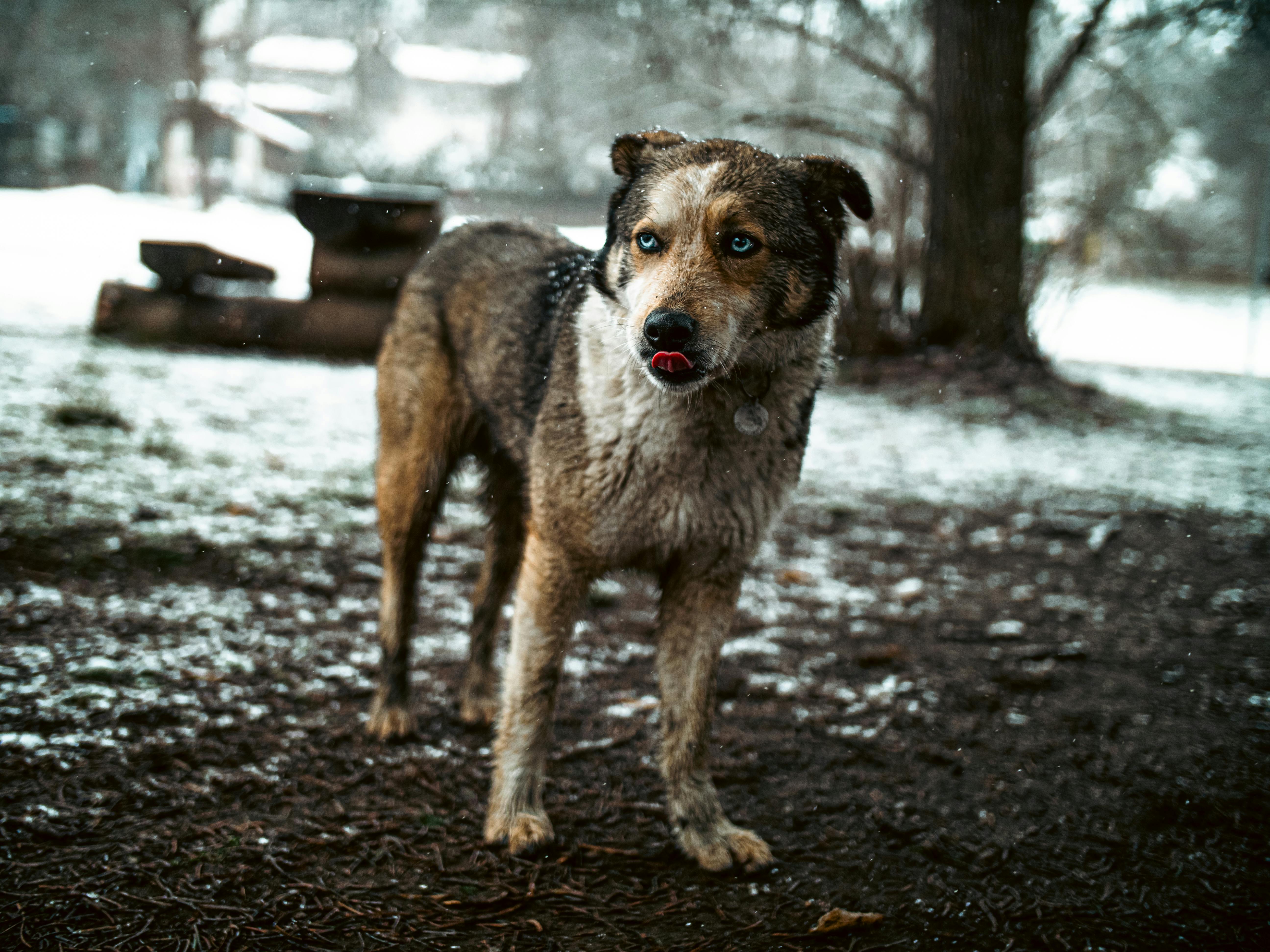
Dogs are often called man’s best friend, and one of the most endearing features of our furry companions is their wet noses. But have you ever wondered why do dogs have wet noses? The truth is, there’s more to a dog’s wet nose than just a cute quirk. It plays a crucial role in their mood and behavior. So let’s dive into the fascinating world of canine noses and discover the surprising benefits they bring!
Why Do Dogs Have Wet Noses?
A dog’s nose is wet for several reasons, which all tie back to their health and how they interact with the world. Here’s a look at the main reasons:
Temperature Regulation: Dogs can’t sweat the way humans do, so they rely on their noses to help cool down. The moisture on their snouts evaporates, which helps to regulate their body temperature.
Enhanced Sense of Smell: A wet nose enhances a dog’s sense of smell. The moisture helps to trap scent particles, making it easier for dogs to detect different smells. This is why dogs are so good at tracking scents.
Health Indicator: A dog’s nose can be an indicator of their health. A consistently dry or warm nose could signal illness, while a wet nose is usually a sign of a healthy pup.
Communication Tool: Dogs use their noses to communicate with each other. A wet nose can be a sign of excitement or affection, while a dry nose might indicate that they are feeling down or unwell.
The Connection Between Wet Noses and Dog Behavior
The state of a dog’s nose can directly affect their mood and behavior. Here’s how:
Excitement and Happiness: When dogs are excited or happy, their noses tend to be wetter. This is often seen during playtime or when they greet their owners. A wet nose in these moments can be a sign that your dog is feeling good.
Stress and Anxiety: Conversely, if a dog is feeling stressed or anxious, their nose may be drier. This can happen during thunderstorms, fireworks, or other situations that cause fear. Monitoring your dog’s nose can help you gauge their emotional state.
Curiosity: Dogs are naturally curious creatures. When they explore their environment, they often get their noses wet from sniffing around. A wet nose can indicate that your dog is engaged and interested in what’s happening around them.
Surprising Benefits of a Wet Nose
Besides the reasons mentioned above, a wet nose provides additional benefits to dogs:
Better Hydration: The moisture on their noses can help keep them hydrated, especially during hot weather.
Improved Social Interactions: Dogs with wet noses are often more approachable. Other dogs and even humans may be more inclined to interact with them.
Enhanced Tracking Abilities: A wet nose boosts a dog’s ability to track scents, which is helpful for working dogs, like search and rescue or hunting dogs.
Cooling Effect: The evaporation of moisture from the nose helps cool a dog down, making it easier for them to engage in physical activities without overheating.
Fun Facts About Dogs’ Noses
Dogs have around 220 million scent receptors, compared to about 5 million in humans. This makes their sense of smell incredibly powerful!
The temperature of a dog’s nose can fluctuate based on their environment and activity level. It’s not always a reliable indicator of health.
Different dog breeds have varying nose shapes and sizes, which can affect their smelling capabilities.
Dogs can even “see” smells! Their brains process scent information in a way that allows them to experience the world differently than humans do.
What to Do If Your Dog’s Nose is Dry
If you notice that your dog’s nose is often dry, you might want to take some action:
Hydrate: Ensure your dog is drinking enough water, especially during hot weather.
Check for Illness: If the dryness persists, consider visiting a vet to rule out any health issues.
Avoid Overheating: Keep your dog cool and comfortable, especially during summer months.
Monitor Behavior: Keep an eye on your dog’s behavior. If they’re acting differently, it might be worth discussing with a professional.
Understanding the importance of your dog’s wet nose can give you insight into their health and emotional state. As a responsible pet owner, being aware of these signs can help you ensure your dog lives a healthy, happy life. Whether it’s their wet nose signaling excitement or stress, paying attention can enhance the bond you share with your furry friend.
Curious About Dog Nose Moisture? Here’s What Every Pet Owner Should Know
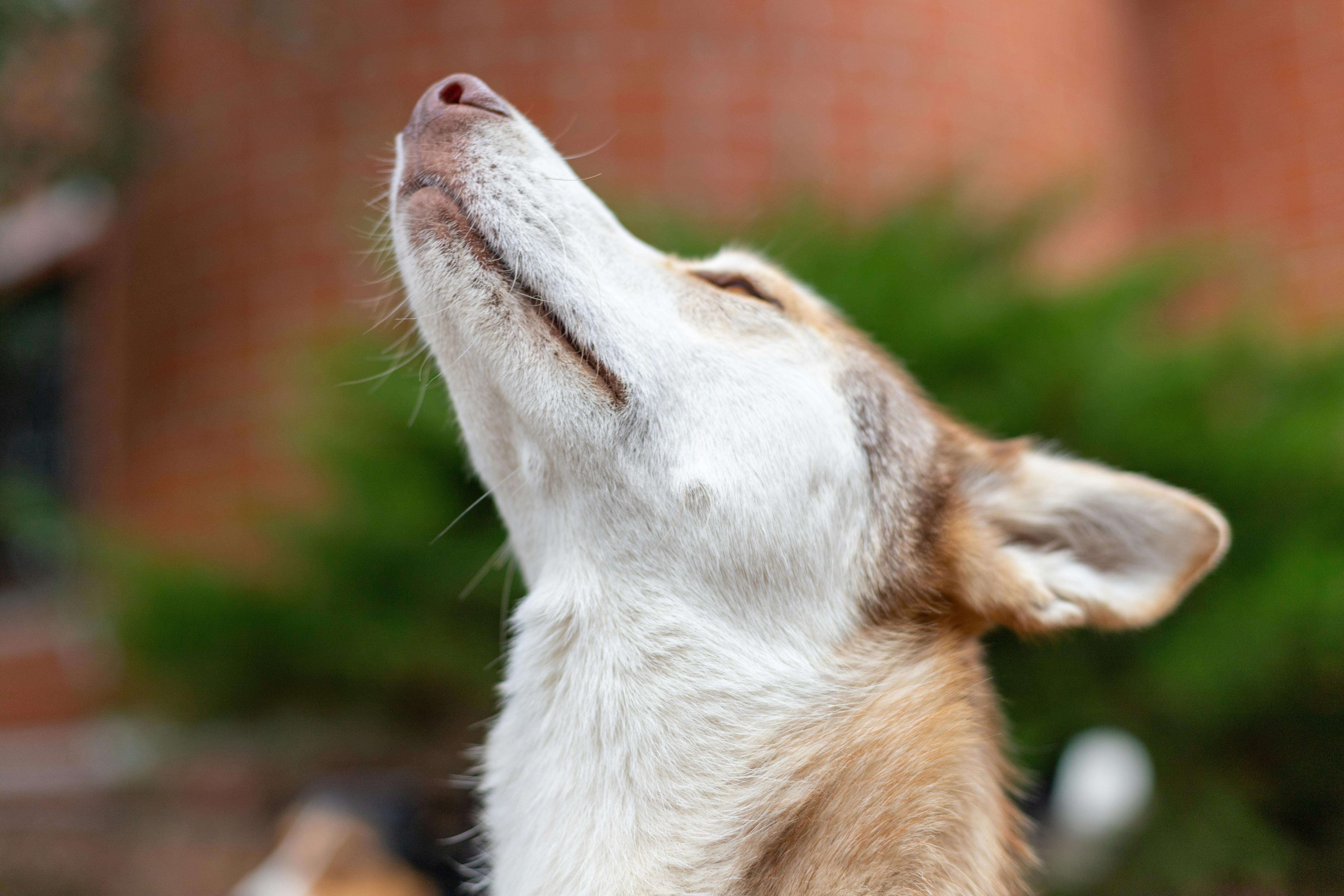
Curious About Dog Nose Moisture? Here’s What Every Pet Owner Should Know, Why Do Dogs Have Wet Noses? Discover The Surprising Benefits!
Ever wondered, why do dogs have wet noses? It’s a common question among pet owners, and believe me, there’s more to it than what meets the eye. Those adorable wet noses aren’t just cute; they play a crucial role in a dog’s health and sense of well-being. If you’re a proud dog parent or just love these furry friends, you might want to dive into the fascinating world of canine noses and moisture.
Why Do Dogs Have Wet Noses?
Wet noses in dogs is not just a random occurrence. There’s actually a science behind it. First off, dogs have glands in their noses that produce mucus, and this moisture helps them smell better. A wet nose can absorb scent chemicals more effectively than a dry one, thus enhancing their sense of smell which is already many times better than ours.
Here’s a quick breakdown of what makes dog noses so special:
- Moisture Absorption: The moisture helps capture scent particles.
- Temperature Regulation: Wet noses can help dogs cool down, since they can’t sweat like humans.
- Health Indicator: A sudden change in nose moisture can indicate health issues.
The Anatomy of a Dog’s Nose
Dog noses are pretty complex. They have about 300 million scent receptors, compared to around 6 million in humans. This means they can smell things we can’t even imagine! Their noses are also divided into two sections, which help them differentiate between smells.
Here’s a simple table to show the differences:
| Feature | Dogs | Humans |
|---|---|---|
| Scent Receptors | ~300 million | ~6 million |
| Nose Anatomy | Complex with two sections | Single section |
| Moisture Production | Yes | No |
Common Myths About Dog Nose Moisture
There’s plenty of myths surrounding dog noses, and some of them are just plain wrong. Let’s debunk a few:
- A Wet Nose Means a Healthy Dog: While a moist nose is often a sign of health, it can also vary based on the environment and activity level.
- Dogs Only Get Wet Noses When They’re Sick: This is false. Dogs can have wet noses even when they’re perfectly healthy.
- Dogs Can’t Get a Cold: Actually, they can get respiratory infections, which can affect their nose moisture.
Benefits of a Wet Nose
So, what are the actual benefits of having a wet nose? Here’s a nifty list:
- Enhanced Smell: A wet nose traps more scent particles, allowing your dog to detect odors more effectively.
- Cooling System: Wetness helps regulate their body temperature, especially during hot weather.
- Social Communication: Dogs often greet each other with nose touches. A wet nose can signal friendliness and health.
What Affects Nose Moisture?
Several factors can affect how wet or dry a dog’s nose is. Here’s a list of things that could play a role:
- Weather Conditions: Humidity can increase moisture, while dry air can lead to dryness.
- Health Status: Certain illnesses can change the moisture level.
- Activity Level: After playing or exercising, a dog’s nose might be wetter due to their increased breathing rate.
Monitoring Your Dog’s Nose
As a responsible pet owner, it’s wise to keep an eye on your dog’s nose. Here are some tips to monitor its health:
- Check Regularly: Look for changes in moisture.
- Watch for Other Symptoms: If the nose is dry and there are other health concerns, it might be time for a vet visit.
- Stay Informed: Educate yourself about dog health, as knowledge can lead to better care.
Final Thoughts
Understanding why dogs have wet noses is more than just a trivia question. It’s a window into the complexity of canine health and well-being. The moisture in a dog’s nose serves various purposes, from enhancing their sense of smell to helping them cool down. So next time you pet your dog, remember that wet nose is not just cute, it’s essential for their health! Embrace the quirks of your canine companion—wet noses are just one of the many features that make them so special.
Exploring the Benefits of Wet Noses: Why They Matter for Dog Owners Everywhere
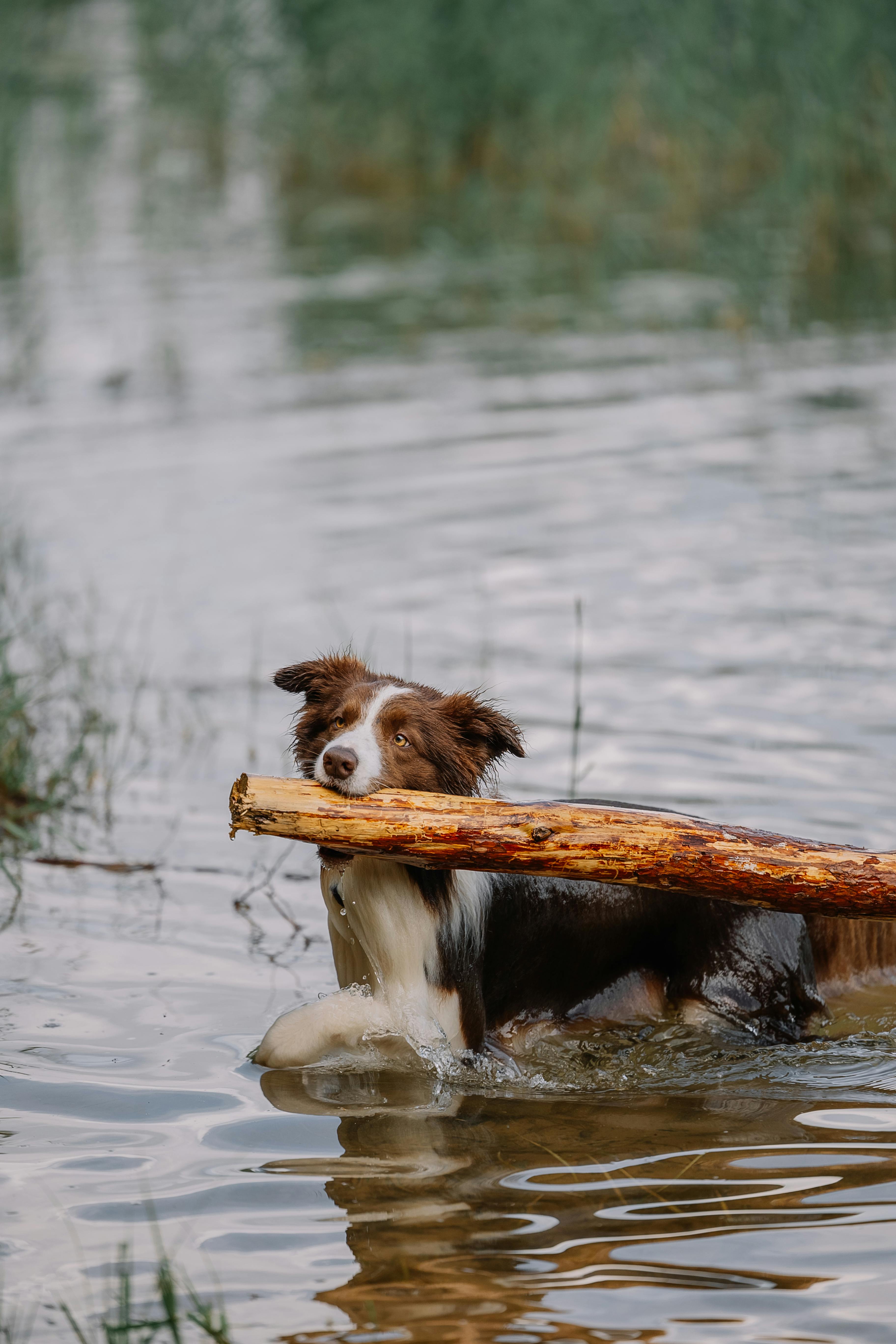
Dogs are often seen with their noses glistening, wet and shiny. Have you ever wondered why do dogs have wet noses? This common feature in our furry friends isn’t just for show. There is several benefits to having a wet nose, and understanding these can help dog owners everywhere appreciate their pets even more. So, let’s dive into the surprising benefits of wet noses!
The Science Behind Wet Noses
The primary reason why dogs have wet noses is due to their unique anatomy. A dog’s nose contains numerous glands that secrete a thin layer of moisture. This wetness plays a crucial role in helping them sense the world around them. Here’s how:
Enhanced Smell: Dogs have an extraordinary sense of smell, and a wet nose helps to capture scent particles from the air. When the nose is moist, it can absorb more scents, which is why dogs can sniff out drugs, find missing people, or even detect certain diseases in humans.
Temperature Regulation: Just like how humans sweat, dogs can regulate their body temperature through their noses. The moisture on their noses evaporates, helping to cool them down. This is particularly important during hot weather.
Communication: A dog’s nose can also be a signal to other dogs. A wet nose can indicate curiosity or excitement. Dogs often greet each other with nose nudges, and the moisture can also convey information about their health and emotional state.
Why Do Dog Owners Care?
Understanding why dogs have wet noses and their benefits can help owners care for their pets better. Here are some reasons why this matters:
Health Indicator: A wet nose is generally a sign of a healthy and happy dog. If a dog’s nose becomes dry or cracked, it could indicate dehydration or illness. Monitoring your dog’s nose can provide insights into their overall well-being.
Behavioral Insights: Knowing that a wet nose can indicate excitement or curiosity can help owners understand their dog’s behavior better. For instance, if your dog approaches you with a wet nose, they might be seeking attention or playtime.
Better Training: By recognizing the importance of smell in a dog’s life, owners can use scent as a training tool. Incorporating sniffing activities into training sessions can keep dogs engaged and mentally stimulated.
Surprising Benefits of Wet Noses
Wet noses provide several benefits that many dog owners might not be aware of. Here’s a list of some surprising advantages:
Improved Scent Detection: The moisture helps dogs identify scents more easily, making them excellent workers in various fields, from search and rescue to therapy dogs.
Comfort and Affection: A wet nose can also be a sign of affection. Dogs often nuzzle their owners with their noses, which can be a way of showing love and comfort.
Natural Thermoregulation: Dogs don’t sweat like humans do; they primarily use their noses and panting to regulate heat, making a wet nose essential for keeping cool.
Social Interaction: Dogs communicate with each other through their noses. A wet nose can indicate openness to social interaction, which is crucial for dog parks or during playdates.
The Historical Context of Wet Noses
Historically, dogs have been our companions for thousands of years. Their noses have played a significant role in various human activities. In ancient times, dogs were used for hunting and herding, relying heavily on their keen sense of smell. The evolution of the dog’s wet nose has allowed them to adapt to these roles effectively.
Tips for Dog Owners
Here are some practical tips for dog owners regarding their furry friend’s noses:
Hydration is Key: Ensure your dog always has access to fresh water. A hydrated dog will have a healthier, wetter nose.
Regular Vet Check-ups: Keep an eye on your dog’s nose condition. If it seems unusually dry or cracked, consult with a veterinarian.
Engage their Sense of Smell: Incorporate scent games into your dog’s routine. Hide treats around the house or yard and let them sniff them out.
Observe Behavior: Pay attention to changes in your dog’s nose and what it could mean about their health or mood.
Grooming: Regular grooming can help maintain the health of your dog’s nose and overall skin.
Wet noses in dogs are more than just a cute characteristic; they serve vital functions that enhance their abilities and improve their communication with us. By understanding the reasons behind this unique trait, dog owners can better care for their pets and appreciate the wonderful bond they share. Embracing their quirks, like wet noses, is just one of the many joys of being a dog owner.
Conclusion
In conclusion, the wet noses of dogs serve several important purposes, from enhancing their sense of smell to regulating body temperature. The moisture on a dog’s nose helps to trap scent particles, making their already impressive olfactory capabilities even more acute. Additionally, the cooling function of a wet nose plays a crucial role in thermoregulation, ensuring they remain comfortable in varying temperatures. While it’s a common belief that a wet nose is a sign of a healthy dog, it’s essential to remember that various factors can influence this characteristic. If you notice any significant changes in your dog’s nose or overall health, consulting a veterinarian is always a wise choice. Embracing the unique traits of our furry friends can deepen our bond with them, so take a moment to appreciate your dog’s wet nose the next time you see it—it’s just one of the many things that make them special!

